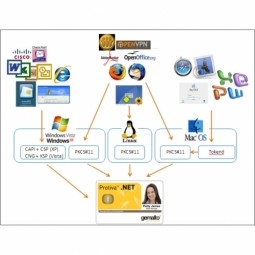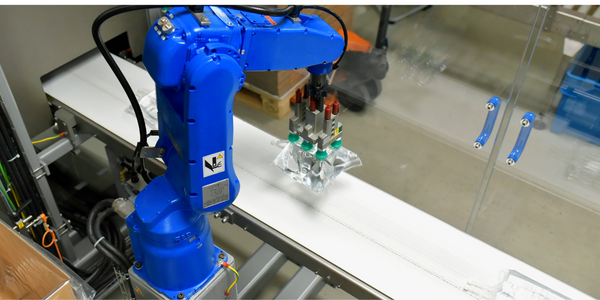公司规模
Mid-size Company
地区
- America
国家
- United States
产品
- Netskope Active Platform
- Netskope for Box
技术栈
- Cloud Computing
- Data Processing
实施规模
- Enterprise-wide Deployment
影响指标
- Productivity Improvements
- Digital Expertise
技术
- 平台即服务 (PaaS) - 数据管理平台
适用行业
- 生命科学
适用功能
- 产品研发
- 商业运营
服务
- 云规划/设计/实施服务
- 数据科学服务
关于客户
Genomic Health, Inc. 是全球领先的基因组诊断测试提供商,致力于解决早期癌症的过度治疗和最佳治疗问题,这是当今医疗保健领域最大的问题之一。该公司针对乳腺癌、前列腺癌和结肠癌的旗舰基因表达测试系列已用于指导全球 60 多万名癌症患者的治疗决策。该公司秉承云优先理念,使用技术工具和服务来满足业务需求。Genomic Health 总部位于北美,拥有 800 名员工。
挑战
Genomic Health, Inc. 是一家领先的基因组诊断测试提供商,致力于解决早期癌症的过度治疗和最佳治疗问题。该公司的乳腺癌、前列腺癌和结肠癌基因表达测试旗舰产品已用于指导全球 60 多万名癌症患者的治疗决策。该公司处理大量数据,因此使用云是一个显而易见的决定。然而,以安全的方式启用云是一项挑战。该公司需要发现所有云应用,将受保护的健康信息 (PHI) 保留在本地或保护在云中,并监控使用情况并在 Box 和其他未经批准的应用中执行策略。
解决方案
Genomic Health 选择 Netskope 以安全的方式启用云。该公司使用 Netskope Active Platform 和 Netskope for Box 确保所有员工安全、合规地使用云应用,通过云治理降低风险,并保护所有应用中的敏感数据(包括 PHI)。该公司首先了解员工正在使用哪些服务,尤其是云应用,以及他们如何使用这些服务。Netskope 是 Genomic Health 的控制点,可阻止 PHI 进入未经批准的云应用。该公司使用 Netskope 的用户指导来提醒用户未经批准的应用不是公司信息存放的地方。
运营影响

Case Study missing?
Start adding your own!
Register with your work email and create a new case study profile for your business.
相关案例.

Case Study
Corporate Identity Solution Adds Convenience to Beckman Coulter
Beckman Coulter wanted to implement a single factor solution for physical and remote logical access to corporate network. Bechman Coulter's users were carrying smart card badges for doors, but also needed a one-time password token to access to our corporate network when they were not in the office. They wanted to simplify the process.

Case Study
Embracing Business Success in Real Time
· Increase control over growing Big Data to improve business decisions · Manage data for 28,000 biotechnology stockkeeping units in the fields of microbiology, molecular biology, animal cell cultures, plant tissue cultures, and lab ware for laboratory chemicals · Accelerate report generation and analysis with real-time data

Case Study
Flow Robotics: Scaling Up Production and Accelerating Product Development with IoT
Flow Robotics, a Danish manufacturer, developed flowbot™ ONE pipetting robots to alleviate the strain on bioanalysts in life-science laboratories and hospitals across Europe. These robots were designed to automate part of the testing process, speeding up the time it takes to produce results and reducing pressure on staff. However, the company faced challenges in scaling up production and accelerating product development. High workloads and physically challenging conditions have long been an issue for laboratory professionals. Flow Robotics estimates that around half of medical lab technicians carry out the same arm movements for at least a quarter of their working day. The American Society for Clinical Pathology reported that 85% of laboratory professionals feel burnt out; 36% struggle with inadequate staffing; and 32% face a heavy workload and pressure to complete all testing on time.
Case Study
Material Intelligence at Ethicon: Sustaining Medical Device Manufacturability and Improving Patient Care
Ethicon, a world-class medical devices company, faced several challenges in its operations. The rapid selection of manufacturing materials compliant in global markets was critical to assure patients, practitioners, and purchasing organizations of the biocompatibility of their medical devices. Ensuring supply chain continuity and minimizing risks of obsolescence for medical devices due to regulatory changes were also crucial in meeting Ethicon’s ongoing commitment to maintaining patient care. Furthermore, the engineers at Ethicon were developing the next generation of medical devices and needed to access historical material data to accelerate new product development. The process of centralizing and digitalizing its materials information was a significant challenge that Ethicon needed to overcome.

Case Study
Revolutionizing Aerospace Industry with 3D Printing: A 63% Lighter Titanium Part
GE Aviation, a renowned name in the aerospace industry, recognized the potential of 3D printing technology in transforming the sector. The primary challenge was to reduce the weight of the aerospace parts, which would directly impact the fuel costs. A lighter airplane would mean lower fuel consumption, leading to cost savings and a smaller carbon footprint. However, achieving this weight reduction without compromising the strength and functionality of the parts was a significant challenge. Traditional manufacturing methods were not able to provide the desired weight reduction while maintaining the required stiffness and strength of the parts. The challenge was to find a solution that could create strong, light, and functional aerospace parts.
Case Study
IWT's Transformation: Customizing with Efficiency in IoT
IWT, a company specializing in the design, manufacture, and installation of washing systems for the life sciences and pharmaceutical industries, faced a significant challenge in managing its wide product portfolio. The company manufactures 45 different models, 60% of which are customized to some degree. This high level of customization, combined with limited production quantities, necessitated a controlled process for managing the release of engineering changes. The goal was to achieve efficiency, reduce process time, and better coordinate production throughout the organization. The need for strict compliance in heavily regulated industries further complicated the situation. IWT's existing PLM journey with Dassault Systèmes’ SOLIDWORKS for 3D CAD and Enovia for managing CAD data and Bills of Materials (BOMs) was proving inadequate. The system had limited part classification, no workflow, and no tool to ensure data consistency. The management of non-CAD documents was also a challenge, with information often difficult to find and access.







